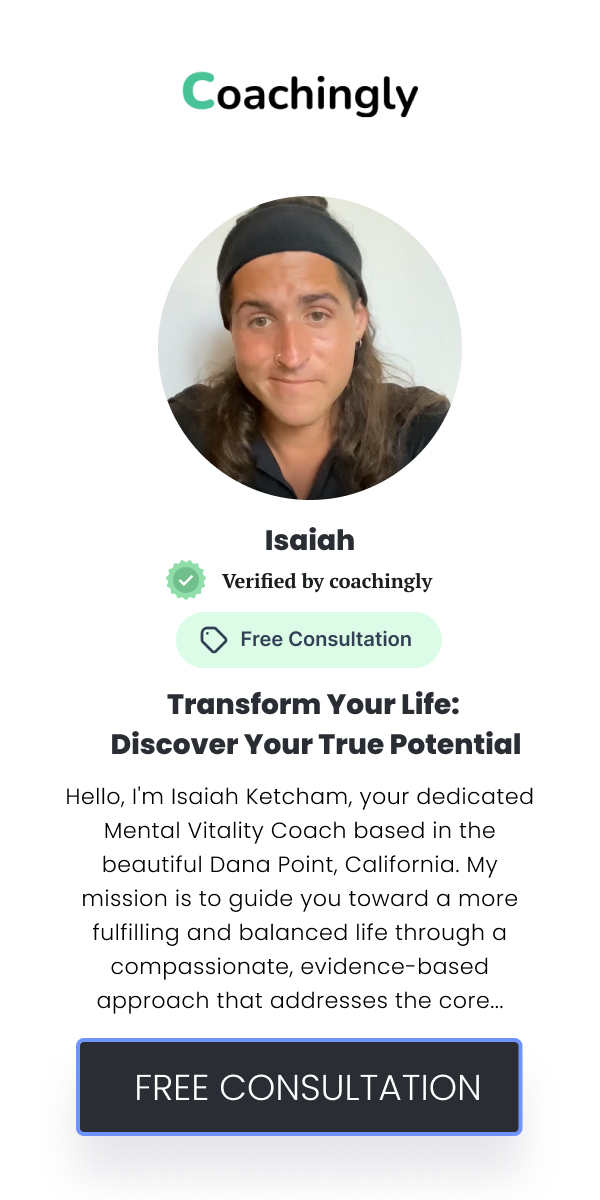
Healing from the Past: How to Overcome Emotional Wounds and Build a Better Future
Isaiah Ketcham
![]() August 17, 2024
August 17, 2024
Emotional wounds are profound psychological injuries resulting from painful experiences such as trauma, loss, or neglect. These wounds can deeply affect how we perceive ourselves and interact with the world. Common sources include abusive relationships, childhood neglect, or significant life changes like divorce or the loss of a loved one. The impact of these wounds can manifest as chronic anxiety, depression, or difficulty in forming healthy relationships. Recognizing these emotional wounds is the first step toward healing, as it allows individuals to understand their root causes and how they influence current behavior and emotions. Addressing these wounds is crucial for achieving mental wellness and fostering personal growth. Understanding emotional wounds empowers individuals to take proactive steps toward healing and improving their overall quality of life. Identifying emotional distress can be challenging, as it often presents both mental and physical symptoms. Emotional indicators may include persistent anxiety, overwhelming sadness, or unexplained anger. These feelings can significantly disrupt daily life, affecting work performance and personal relationships. Physical symptoms, such as chronic fatigue, headaches, or digestive issues, often accompany emotional pain. Behavioral signs may include withdrawal from social activities, increased reliance on substances, or erratic behavior. Recognizing these signs is essential for seeking appropriate help and addressing the underlying issues. Awareness of these symptoms can guide individuals toward effective strategies and support systems for their healing journey. A Mental Health Coach plays a pivotal role in guiding individuals through their healing process. Unlike traditional therapy, coaching focuses on setting actionable goals and developing strategies to overcome emotional hurdles. Coaches offer a supportive environment that encourages personal growth and self-discovery. They work collaboratively with clients to identify and challenge negative thought patterns and behaviors. The primary aim is to empower clients to take control of their healing journey and foster long-term well-being. By incorporating various therapeutic techniques and providing ongoing support, Mental Health Coaches help individuals build resilience and create a more balanced life. Engaging with a coach can significantly enhance the effectiveness of personal development efforts. Overcoming emotional wounds involves employing various strategies that promote healing and personal growth. Developing self-awareness is a foundational step; practices such as journaling and mindfulness can help individuals reflect on their emotions and identify underlying issues. Building resilience through positive habits, such as regular exercise and a nutritious diet, supports overall mental and physical health. Exploring therapeutic techniques, including cognitive-behavioral strategies and emotional freedom techniques, can offer valuable tools for managing and transforming emotional pain. These methods encourage individuals to challenge and change negative thought patterns, fostering a more positive outlook on life. Consistent application of these strategies can lead to significant improvements in emotional well-being and personal satisfaction. Embracing these practices is vital for creating lasting change and achieving a healthier, more fulfilling life. A robust support system is essential for effective emotional healing and personal growth. Social connections, such as supportive friends, family members, and support groups, play a crucial role in providing emotional and practical assistance. Building and maintaining these relationships can offer a sense of belonging and reduce feelings of isolation. Seeking out and nurturing supportive connections involves actively engaging with others and being open to receiving help. Community involvement can also enhance personal resilience by offering additional resources and encouragement. Developing a network of supportive relationships contributes to a more balanced and resilient approach to life's challenges. Strong connections provide a foundation for ongoing personal development and emotional recovery. Crafting a vision for a better future involves setting realistic and achievable goals that align with personal values and aspirations. Establishing clear objectives helps guide the healing process and fosters a sense of purpose and direction. Developing a personal growth plan, including skill-building and exploring new experiences, supports ongoing development and fulfilment. Embracing change and adapting to new life circumstances are integral to this process, as they allow individuals to move forward despite past difficulties. This forward-looking approach encourages individuals to focus on their potential and create a more meaningful and satisfying life. By maintaining a positive outlook and actively pursuing personal goals, individuals can build a future that reflects their true desires and strengths. A well-defined vision for the future provides motivation and direction, facilitating continued growth and emotional well-being. Sustaining progress in overcoming emotional wounds requires an ongoing commitment to self-care and personal development. Establishing regular routines for self-reflection and goal-setting helps maintain focus and motivation. Addressing setbacks with a compassionate and resilient mindset is crucial for overcoming challenges and continuing growth. Celebrating small victories along the way reinforces positive behavior and builds confidence. Implementing effective self-care strategies, such as regular check-ins with a coach and practicing mindfulness, supports long-term well-being. Maintaining progress involves adapting to changes and continually refining personal goals to align with evolving needs and aspirations. Consistent effort and dedication to personal growth are essential for achieving lasting emotional health and a more fulfilling life.Understanding Emotional Wounds
Recognizing the Signs of Emotional Distress
The Role of a Mental Health Coach in Healing
Effective Strategies for Overcoming Emotional Wounds
Building a Strong Support System
Creating a Vision for a Better Future
Maintaining Progress and Sustaining Well-Being

Recent Articles
The Path to a Fulfilling Life: Combining Mental Health and Holistic Wellness Strategies
Mental health and holistic wel...
![]() Sep 06, 2024
Sep 06, 2024
Overcoming Negative Core Beliefs: Shifting Your Mindset for Lasting Change
Negative core beliefs are deep...
![]() Sep 05, 2024
Sep 05, 2024
Mental Vitality and Emotional Balance: A Comprehensive Approach to Wellness
The Importance of Mental Vital...
![]() Sep 04, 2024
Sep 04, 2024
Navigating Life Transitions: A Guide to Mental and Emotional Resilience
Understanding Life Transitions...
![]() Sep 03, 2024
Sep 03, 2024
The Power of Positive Change: Breaking Free from Self-Sabotaging Behaviors
Understanding Self-Sabotaging ...
![]() Sep 02, 2024
Sep 02, 2024
Life After Divorce: Steps to Rebuild and Flourish in Your New Chapter
Divorce often signifies a prof...
![]() Sep 01, 2024
Sep 01, 2024
Navigating Relationship Challenges: How Coaching Can Help Couples Communicate Effectively
Understanding the Importance o...
![]() Aug 31, 2024
Aug 31, 2024
Couples Coaching for Lasting Love: Rebuilding Trust and Intimacy in Relationships
Understanding the Role of Coup...
![]() Aug 30, 2024
Aug 30, 2024
From Stress to Success: Managing Anxiety with Holistic Wellness Practices
Understanding Anxiety and Its ...
![]() Aug 29, 2024
Aug 29, 2024
The Role of Core Beliefs in Mental Health: Identifying and Overcoming Limiting Patterns
Understanding Core BeliefsCore...
![]() Aug 28, 2024
Aug 28, 2024
Restoring Balance: How Holistic Coaching Supports Your Mental, Physical, and Emotional Well-being
In today's fast-paced world, a...
![]() Aug 27, 2024
Aug 27, 2024
The 90-Day Human Resilience Intensive: Your Path to Emotional and Physical Well-being
Understanding the 90-Day Human...
![]() Aug 26, 2024
Aug 26, 2024
Empower Your Journey: How Coaching Supports Personal Growth and Fulfillment
Understanding Coaching and Its...
![]() Aug 25, 2024
Aug 25, 2024
Creating Healthy Boundaries: How to Protect Your Mental Health in Relationships
Understanding Healthy Boundari...
![]() Aug 24, 2024
Aug 24, 2024
Achieving Mental Clarity: The Connection Between Wellness and Emotional Health
Understanding Mental ClarityMe...
![]() Aug 23, 2024
Aug 23, 2024
Transformative Success Stories: Real Lives Changed by Holistic Coaching
Holistic coaching represents a...
![]() Aug 21, 2024
Aug 21, 2024
Holistic Health 101: Integrating Mental, Emotional, and Physical Wellness for a Balanced Life
Understanding Holistic HealthH...
![]() Aug 20, 2024
Aug 20, 2024
How Accountability in Coaching Drives Sustainable Personal Growth
Understanding Accountability i...
![]() Aug 19, 2024
Aug 19, 2024
Transforming Relationships: Tools to Strengthen Communication and Connection
Understanding the Importance o...
![]() Aug 18, 2024
Aug 18, 2024
Rediscovering Yourself: How to Rebuild Confidence and Self-Worth Post-Divorce
Embracing the Journey of Self-...
![]() Aug 16, 2024
Aug 16, 2024
Breaking Free from Toxic Relationships: A Holistic Approach to Healing and Growth
Understanding Toxic Relationsh...
![]() Aug 15, 2024
Aug 15, 2024
Rebuilding After a Toxic Divorce: Steps to Reclaim Your Life and Thrive
Acknowledging the Impact of a ...
![]() Aug 14, 2024
Aug 14, 2024
Unlocking Your Potential: How Holistic Wellness Coaching Can Transform Your Life
Understanding Holistic Wellnes...
![]() Aug 13, 2024
Aug 13, 2024
